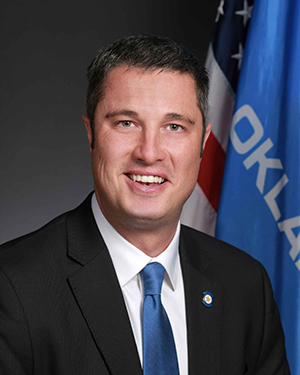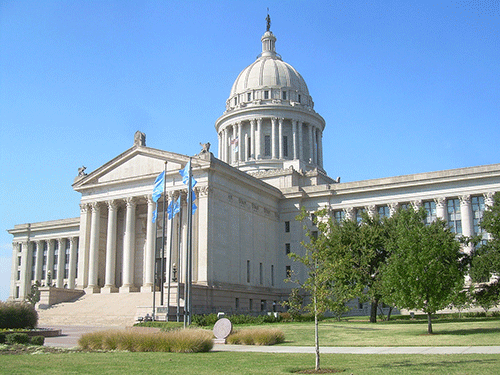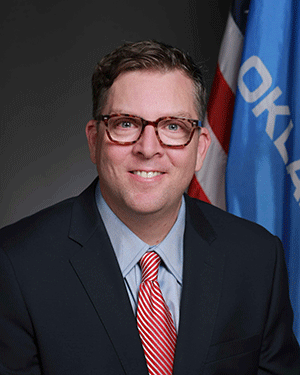with Sen. Chris Kidd
Oklahoma has received some good news in recent weeks. In 2004, the state had the 49th worst highway bridge system in the nation with nearly 1,200 (of 6,800) considered structurally deficient. That number has decreased to only 86 highway bridges needing major rehabilitation or replacement, which are all scheduled in ODOT’s Eight-Year Plan. Oklahoma now ranks 9th nationally according to the Federal Highway Administration giving the state a Top Ten status for the first time in state history.
The Federal Emergency Management Agency (FEMA) has also approved Oklahoma for the Lost Wages Assistance (LWA) program, which will provide an additional $300 a week for unemployed Oklahomans. This replaces the $600 per week that workers received under Federal Pandemic Unemployment Compensation (FPUC), which expired the last week of July.
If you’re still waiting for unemployment for dates prior to August, you’ll receive the $600 extra and then the $300 will kick in for dates after that. Again, please contact my office if you’re having trouble securing your unemployment. We’re here to help you however we can.
Our state economy is slowly recovering. Unemployment rates are lowering, and our July General Revenue Fund (GRF) collections came in nearly $69 million or 9.5% above the monthly estimate at $790.5 million. This was also $290.8 million higher than July 2019 collections. While this was mainly caused by the delayed income taxes and deferred first-quarter payments, it’s still promising news. We must proceed cautiously, though, as the energy and business sectors continue to struggle. There are still companies facing closure and some considering furloughs and layoffs. On the flipside, there are also companies expanding and relocating to Oklahoma. Leaders have been working hard in recent years to ensure Oklahoma is a business-friendly state and has the workforce and other assets needed to attract companies.
One area that needs improvement is our broadband capability statewide. This past session, we approved the Rural Broadband Expansion Act, which created a council to study access around the state. One of the first things companies look at when considering relocation is a state’s connectivity. It has also become painfully obvious this year with so many citizens trying to file for unemployment online, people teleworking and many schools going virtual that Oklahoma needs to improve its broadband access. In today’s digital world, everyone must have access to the internet. The 13-member council will work to create a strategic plan to improve connectivity statewide. They will submit their annual report and recommendations by January 31.
The Legislative Office of Fiscal Transparency (LOFT) also announced its work plan for the current fiscal year, which was approved by its legislative oversight committee. LOFT was created in 2019 to provide the legislature with more in-depth evaluations of state agency budgets and program performance without duplicating work conducted by legislative staff.
The work plan is modeled on a similar one in Mississippi and will be divided into three categories including –
1) Rapid response evaluations (90-100 days) – special requests from the oversight committee to inform immediate funding or policy decisions for the legislature.
2) Priority program evaluations (6-8 months) – part of the work plan included in the annual report provided before the beginning of the legislative session.
3) Secondary program evaluations (long-term) – analysis of large state agencies and programs based on funding and impact.
LOFT will conduct 7-12 evaluations each year. This fall, they’ll be evaluating the Oklahoma Employment Security Commission (OESC), the Board of Equalization, and the Department of Health and use of COVID funding by state health programs. They’ll also analyze state agency and higher education institutions’ COVID funding allocation, reimbursement and utilization.
The office has a full schedule in the coming months, and I look forward to reading their findings in January. The work plan is available at www.okloft.gov.
In closing, please be sure to participate in the 2020 Census. The deadline for self-reporting is Wed., Sept. 30. Your participation will determine federal funding for your local community, county and the state for vital government programs like healthcare, education and transportation. You can fill yours out at www.2020Census.gov or by calling 1-844-330-2020.
Thank you again for the privilege of serving our district and the State of Oklahoma in the Senate. If I can be of any assistance, you can reach me at (405) 521-5563 or Chris.Kidd@oksenate.gov.















